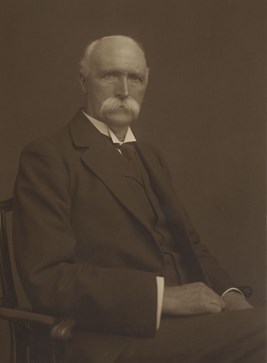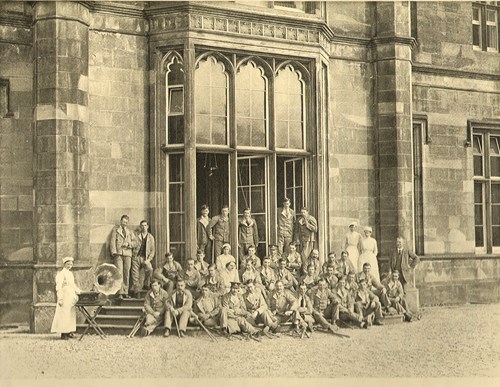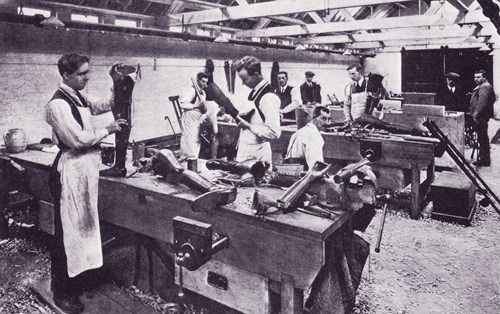Sir William Macewen was the professor of surgery at Glasgow University, with a world-wide reputation for advancing surgical procedures. He was appointed to lead the project to establish a new hospital dedicated to treating those whose limbs had been disastrously wounded on the battlefield.
Sir William, a towering figure both physically and professionally, was the perfect choice. He was the driving force behind the hospital's creation. His pioneering operations had provided him with considerable experience in tackling the seemingly impossible, undaunted by negative perceptions from others. His reputation, fearlessness and foresight inspired others to rally to the cause.

Once he had secured the backing of his fellow surgeons, as the funds to make his vision for a new military hospital a reality were needed, he approached the Lord Provost of Glasgow, Sir Thomas Dunlop. The Provost gave his immediate support and convened a public meeting in the City Chambers on March 29, 1916.
Macewen’s speech, setting out the need for a specialist hospital, roused public sympathy and support to such an extent that £100,000 was contributed within a few weeks and doubled within a year. At that moment, Erskine was born or as it was named then the Princess Louise Scottish Hospital for Limbless Sailors and Soldiers.
The hospital building was due to the generous offer by Thomson Aikman. He proposed the free use of Erskine House and its grounds for the duration of the war and 12 months afterwards. Even more generously, Sir John Reid later provided the funds to accept Aikman’s offer to sell the mansion house to the hospital if it were to become a permanent institution.

Situated on the banks of the Clyde, Erskine House, now the prestigious Mar Hall in Bishopton, Renfrewshire. was transformed into a state-of-the-art medical care facility for the rehabilitation of limbless veterans.
The Princess Louise Scottish Hospital for Limbless Sailors and Soldiers stands as a testament to Sir William Macewen's indomitable spirit and pioneering vision, forever etched in the history of our Forces. It was an innovative institution, setting global standards in the design, manufacture, and fitting of artificial limbs. Macewen's vision extended beyond surgical expertise; he aimed for a holistic approach.

The legacy that remains is that Erskine, initially envisioned for First World War Veterans, has evolved throughout the decades into a modern institution providing care and rehabilitation for Veterans into old age. Macewen's vision, as articulated by Princess Louise, remains “ingrained in our DNA”.














